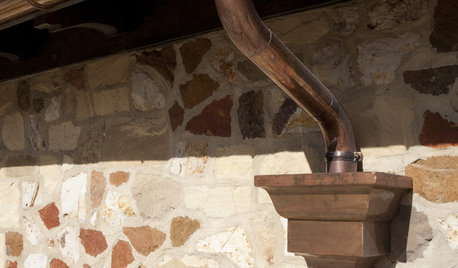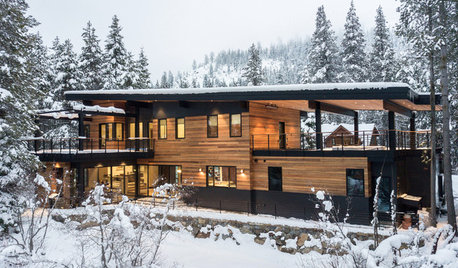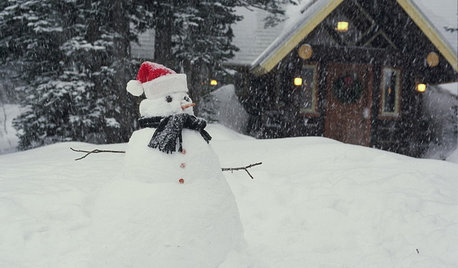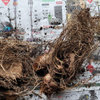Can dog urine cause damage in winter?
impatientgardener
17 years ago
Related Stories

HOUSEKEEPINGProtect Your House From Winter Water Damage
Avoid costly repairs by learning to spot potential problem areas before water damage is done
Full Story
GARDENING GUIDESGot Frost-Damaged Plants? How It Happens, and When and How to Prune
Crispy brown leaves are a sure sign that Jack Frost has been to your neighborhood
Full Story
BATHROOM DESIGNShould You Install a Urinal at Home?
Wall-mounted pit stops are handy in more than just man caves — and they can look better than you might think
Full Story
WINDOW TREATMENTSA Surefire Way to Prevent Sun Damage Indoors
Why let light ruin your furniture, floors and artwork, when the solution could be as simple as applying high-quality window film?
Full Story
DISASTER PREP & RECOVERYRemodeling After Water Damage: Tips From a Homeowner Who Did It
Learn the crucial steps and coping mechanisms that can help when flooding strikes your home
Full Story
GARDENING AND LANDSCAPINGTake a Winter Walk on the Safe Side
Learn how to handle snow, ice and other cold-weather landscape factors to minimize falls and damage
Full Story
PETS5 Finishes Pets and Kids Can’t Destroy — and 5 to Avoid
Save your sanity and your decorating budget by choosing materials and surfaces that can stand up to abuse
Full Story
HOUSEPLANTSIndoor Winter Gardens for Cheerier Days
Bring plants inside for drab-days mood boosting — not to mention cleaner indoor air and protection for your greenery
Full Story
MONTHLY HOME CHECKLISTSYour Winter Home Maintenance Checklist
Keep your home and yard safe and running smoothly as temperatures drop and activity moves indoors
Full Story
LIFEShare Your Winter Storm Jonas Photos and Survival Tips!
Let’s see your pictures and hear your ideas on how you’re keeping your house warm and staving off cabin fever
Full StoryMore Discussions







bonniepunch
tiffy_z5_6_can
Related Professionals
West Milford Landscape Architects & Landscape Designers · Carson Landscape Architects & Landscape Designers · Cottonwood Landscape Architects & Landscape Designers · Lyons Landscape Architects & Landscape Designers · Walnut Landscape Architects & Landscape Designers · Washington Landscape Architects & Landscape Designers · Clermont Landscape Contractors · Bowie Landscape Contractors · Brooklyn Park Landscape Contractors · Costa Mesa Landscape Contractors · Edwardsville Landscape Contractors · Fort Payne Landscape Contractors · Paso Robles Landscape Contractors · Vallejo Landscape Contractors · West Haverstraw Landscape Contractorssheryl_ontario
ianna